A young and fit woman who was rarely sick instinctively knew one day that things weren’t right with her health.
But Lauren Gribble’s youthful and healthy appearance meant her glaring cancer symptom was initially dismissed.
Up until that time, the Townsville woman, who is now 32 years old, described herself as having ‘a completely clean health record’.
‘I was pretty fit at the time,’ the North Queensland resident told Daily Mail.
‘I played touch football, so I was training and exercising regularly. I was the kind of person who never even got headaches.’
Lauren, who was 29 at the time, had a life that resembled most other people her age.
She’d established herself in a career as a social worker and was also continuing her further education by studying a Master of Business Administration.
She had an active and busy social life filled with family and friends and also had a happy long-term relationship with her school teacher partner, Rowan.
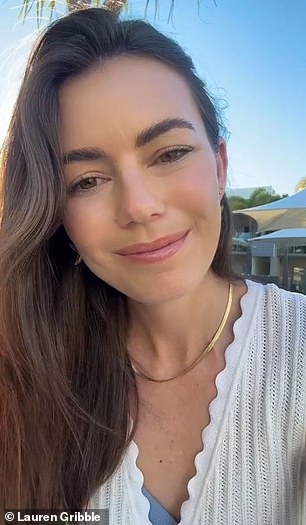
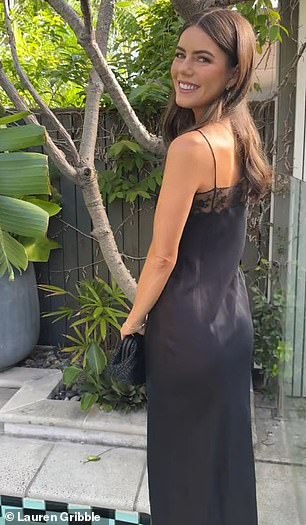
‘Fit and healthy’ Lauren Gribble knew one day that things weren’t right with her health
‘As I approached the age of 30, on paper everything was pretty on track,’ she said.
‘I was happily in a long-term relationship, my friendships were going great and I was working full-time.’
But health-wise, Lauren started to experience the occasional presence of a worrisome symptom.
‘I had noticed that I’d started to get these bits of blood in my stools periodically,’ Lauren said.
‘Not too consistently, but definitely here and there.’
Erring on the side of caution, she decided to go to a doctor and get checked out.
Rather than waiting for an appointment with a GP known to her, she took the first available appointment with a doctor who she’d never met.
Lauren walked into that appointment presenting as a young woman in good physical shape.
‘I trusted their judgement’
Accordingly, the doctor was unconcerned by her symptoms, theorising that she most likely just had haemorrhoids.
‘I didn’t feel dismissed, I just trusted their judgement,’ she said.
Lauren heeded the doctor’s assessment and diligently investigated ways to prevent haemorrhoids – one of which was to increase her fibre intake.
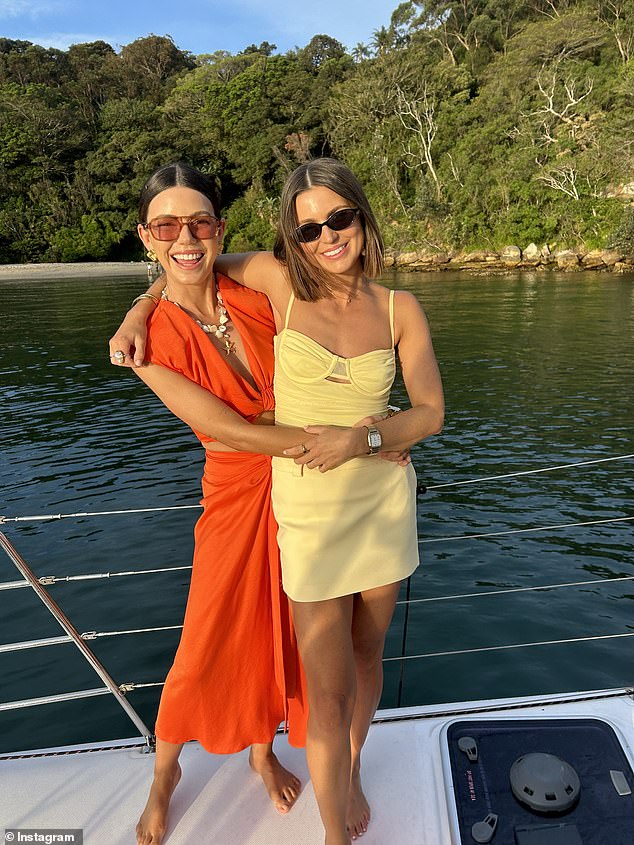
Lauren (left), pictured with her sister Lisa (right), says she had the kind of life that looked perfect ‘on paper’ – until she started experiencing a worrying health symptom in her late 20s
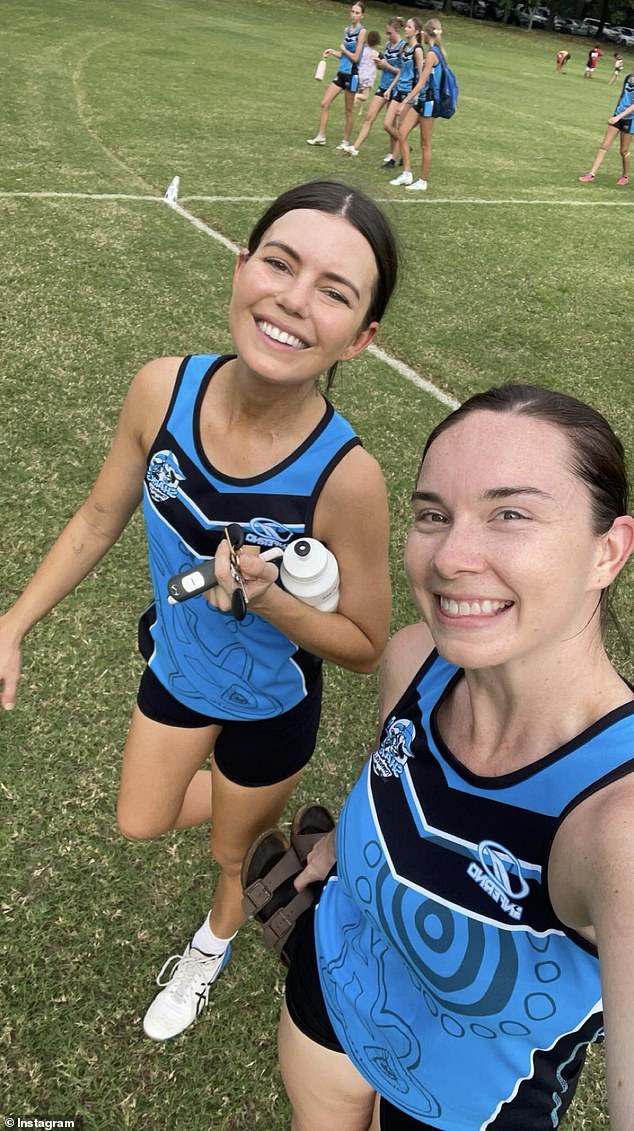
Lauren (left) from Townsville had always been fit and healthy, even regularly playing in a touch football team with her friend, Izzy (right)
But something didn’t quite add up.
‘I’m vegetarian, so I already had quite a high fibre diet and wasn’t sure how I could possibly increase that intake more than I already did.’
Meanwhile, bright red blood continued coming and going in her stools.
Months later, Lauren and Rowan had a trip to Europe booked in to attend a friend’s destination wedding.
Hoping her bothersome health issue would go away before the trip, Lauren decided to find a different doctor and get a second opinion.
It turned out to be a potentially life-saving decision.
Lauren said the ‘incredible’ doctor was ‘alarmed’ by her symptoms and ‘immediately’ sent her off for a series of blood tests and a colonoscopy followed by a biopsy – all of which took place just days before Lauren was due to depart overseas.
Subtle signs
In hindsight, Lauren realises there were other more subtle symptoms that she had overlooked, such as ‘bloating and fatigue’ and even the uncommon symptom of ‘back pain’.

Lauren was due to depart on a trip to Europe when days prior to departure a series of health tests uncovered that she had stage two colorectal cancer
Soon after, Lauren’s world was turned upside down.
The colonoscopy uncovered an ulcer, and a subsequent biopsy confirmed it was stage two colorectal cancer, isolated to her bowel and colon.
‘It was just numbing to hear that,’ she said.
‘It was the most bizarre experience to expect them to say they would just have to remove a haemorrhoid or just fix something minor, only to find out I had cancer.’
The confirmed diagnosis came two days prior to Lauren embarking on her planned holiday adventure.
Torn on what to do, doctors suggested Lauren should proceed with her travel plans as it would invariably take a few days to tee up all the necessary appointments and specialist meetings.
‘The doctors said, “Go on the trip – because I can’t tell you when it might be that you’ll be able to do a trip like this again”.’
‘Strange reality’
Lauren and her partner Rowan tried to enjoy their holiday as best they could, but she admits it was a strange reality to be woken in the middle of the night by calls from various Australian hospitals and specialists scheduling in appointments for her return.
There wasn’t a moment to waste once she got home.
‘I had to fast on the plane ride back so that I could go straight into my first PET scan. It was all systems go,’ she said.
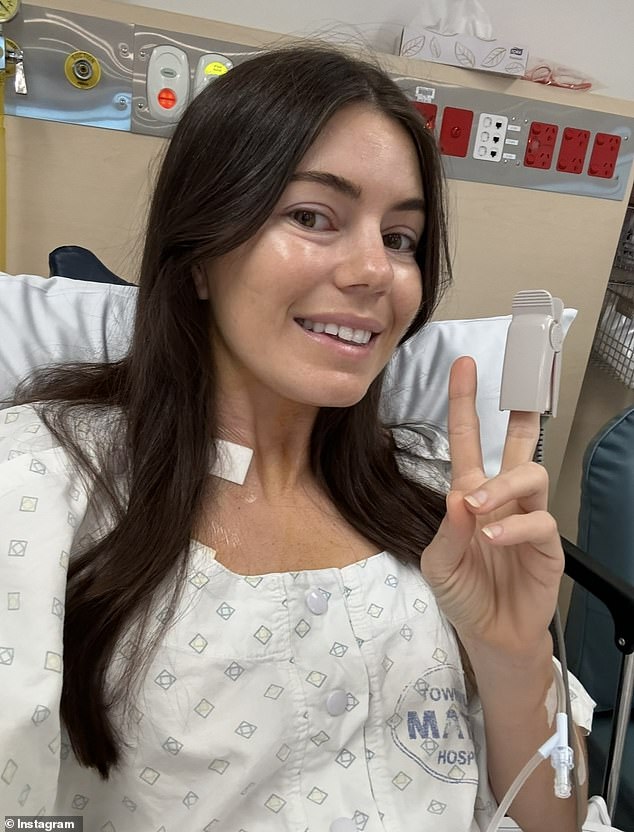
Over an eight month period, Lauren endured rounds of intensive radiation supplemented by daily oral chemotherapy and later intravenous chemotherapy
Typically, patients with this type of bowel cancer would undergo surgery to remove it.
‘The problem with mine was it was so low lying, meaning it would be difficult to surgically remove without causing other complications.’
‘So I would need to go down the path of radiation and chemotherapy.’
In the end, Lauren endured a rigorous 25 rounds of intensive radiation supplemented by daily oral chemotherapy.
‘After the radiation was done, I then did eight rounds of intravenous chemotherapy on a fortnightly basis,’ she said.
‘It took about eight months in total.’
Perhaps surprisingly, Lauren said she continued to work throughout the duration of her treatment, citing it as something that helped her through the difficult process.
‘My workplace was absolutely incredible and supportive,’ she said.
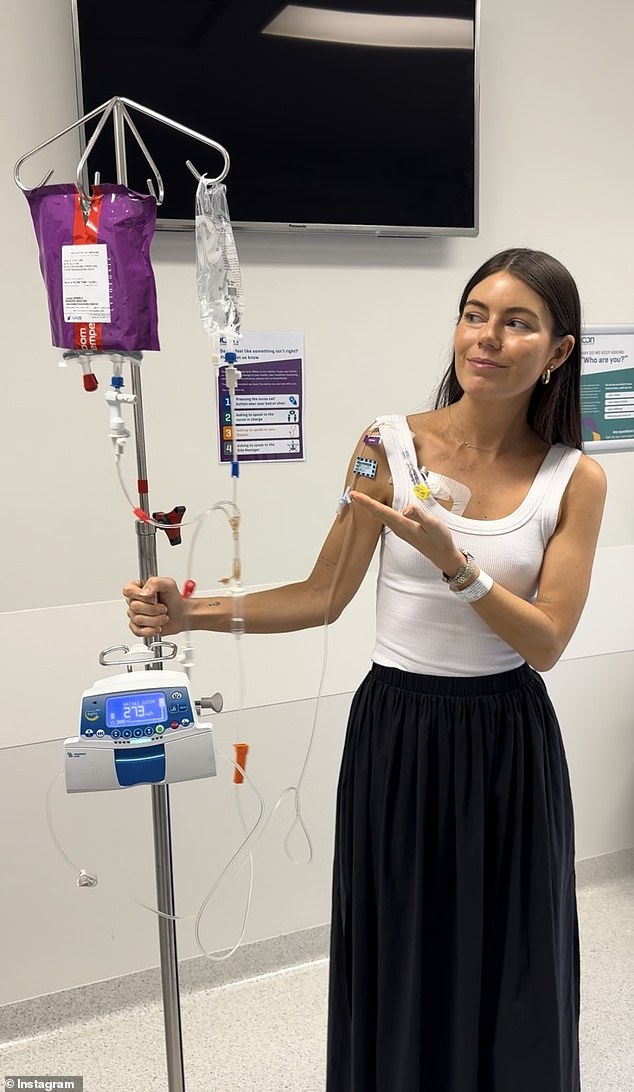
In between undergoing cancer treatment, Lauren continued to work as much as she was able to. ‘I personally found that for me, that was really helpful, because it gave me something else to focus on,’ she told Daily Mail
‘Personally, I found that really helpful because it gave me something else to focus on,’ she added.
‘I recognise that not everybody can do that – some people’s cancer treatments just completely roll them.
‘But for me, I was able to manage the treatment well enough…and that was really helpful mentally to have that outlet and not constantly be “the sick person”.’
Lauren credits her ‘brilliant’ support network of friends and family for helping her throughout the treatment process – and in particular, her sister Lisa, who relocated to Townsville shortly after Lauren’s diagnosis.
‘She came with me to every single one of my appointments,’ Lauren said.
‘While I was in treatment, the nurses came to expect Lisa would be there with me. By the end, they would always have cheese and biscuits and a lamington ready to go for both of us.’
Fortunately for Lauren, she was one of the lucky ones who experienced what doctors describe as ‘a complete clinical response’ to the cancer treatments.
‘The chances of that happening are super low,’ she explained.
‘But once I started treatment I had a really good response to radiation.’
Initially, the plan had been to shrink the tumour as small as possible before hopefully surgically removing it.
Ultimately, the treatment was so effective that it eradicated the tumour in its entirety.
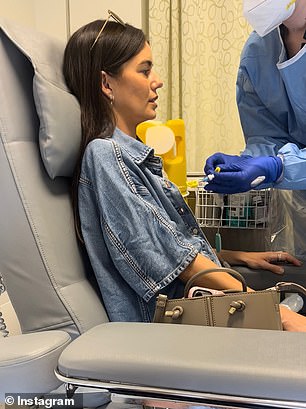
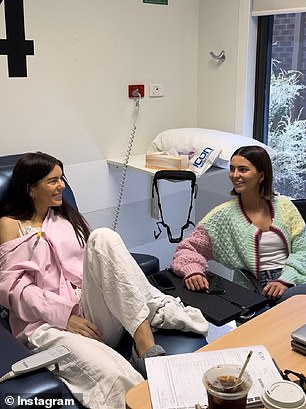
Lauren credits her support network of family and friends for helping her through the cancer treatment process. In particular, her sister Lisa (far right) was a constant presence, joining her at every appointment
‘I was really, really fortunate that my body responded well to the treatment and did exactly what it was intended to do to the tumour,’ Lauren said.
She officially concluded cancer treatment in March 2024.
‘That feeling [of it being over] was just the biggest relief,’ she said.
‘It was huge not to have to sit with that any longer and be able to focus on other things.’
Nowadays, she continues to undergo regular monitoring tests including blood work, quarterly MRIs and sigmoidoscopies (which is like a mini colonoscopy), bi-annual PET scans and an annual colonoscopy.
‘Peace of mind’
All these tests are monitoring to ensure there’s ‘no new growth and no signs of the tumour existing’.
‘I know a lot of people get really anxious around testing, and I get anxious too,’ Lauren said.
‘But it also gives me peace of mind to be checked and have that confirmation that there’s nothing happening under the surface that I don’t know about.’
All things going well, the regularity of the testing will gradually decrease in years to come.
But the recovery phase hasn’t been without its challenges.
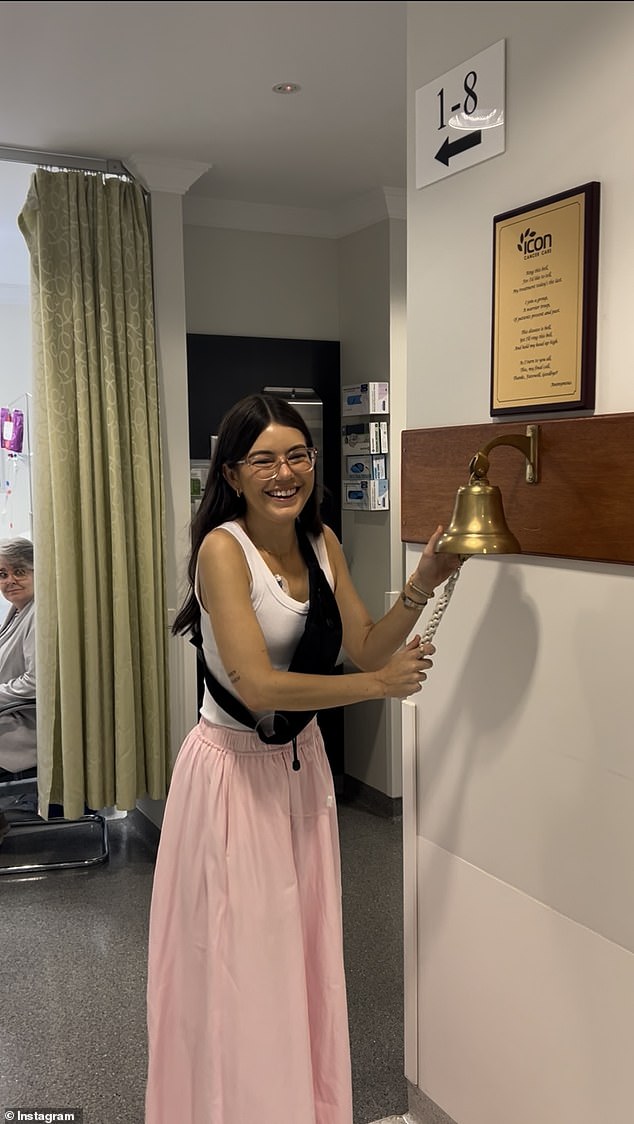
Lauren officially concluded cancer treatment in March 2024 but continues to undergo a variety of regular health checks that monitor to ensure the cancer hasn’t returned
The side effects of one of the medications saw Lauren develop ‘extremely bad neuropathy in my feet and my hands’, to the point that it became painful to walk even small distances.
She’s also started hormone replacement therapy – which, although brilliant, has induced early menopause – including ‘all the weird and wonderful symptoms’ that come with it, like hot flushes.
‘I’m so young to be going through this, and it’s definitely hard for a lot of people my age to understand,’ she said.
Unlike her 30-something peers who are at the stage of starting families, Lauren concedes that it’s currently unknown whether she’ll one day be able to carry a pregnancy – although she did pre-emptively freeze embryos prior to cancer treatment.
‘Because the radiation was in that pelvic area, it’s unknown how much it’s impacted my uterus,’ Lauren said.
‘But the embryos are there, so it’s something to navigate in the future.’
Lauren reflects that this ability to cope with unknowns is one of the surprise gifts that going through cancer has ultimately given her.
‘What this journey has really taught me is there’s no point putting energy into and worrying about things before they happen or before they’re an issue for you, because you just never know what’s going to happen,’ she said.
‘I used to be somebody who planned a lot and was a stereotypical Type A organised person.
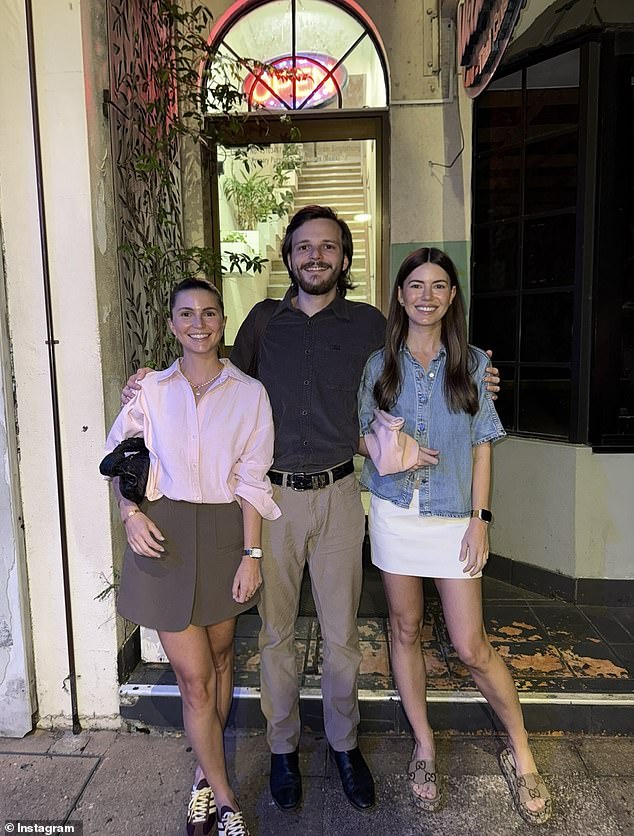
Lauren (right), pictured with her siblings Lisa and Aden, started sharing her health journey on her TikTok account @laurenmareeg in the hopes that it may help other young people who find themselves with diagnosed with colorectal cancer
‘Now, I’m significantly better at just rolling with things, and I enjoy taking each day as it comes.’
This shift in mentality also factored into Lauren’s decision to start documenting her health journey on her social media account, @laurenmareeg.
After finding solace in following vlog-style accounts of other young bowel cancer sufferers like Kellie Finlayson, Lauren decided to do the same.
‘It was so helpful seeing her post and following along with her journey,’ she said.
‘I wanted to do that for other people too, even if it just reached one person.’
With a little encouragement from her sister, Lauren started regularly sharing her story with her followers.
‘Mind-blowing’
To this day, Lauren continues to receive DMs from young women in Australia and far beyond, often reaching out with questions or seeking advice.
‘It’s mind-blowing,’ she said.
‘Often they’ve just been diagnosed [with colorectal cancer] and are very similar to me – no family history, young and seemingly quite fit and healthy.
‘They’ll message to share their story, or thank me for sharing mine.
‘It’s a way to connect and know that they’re not alone in this.’
